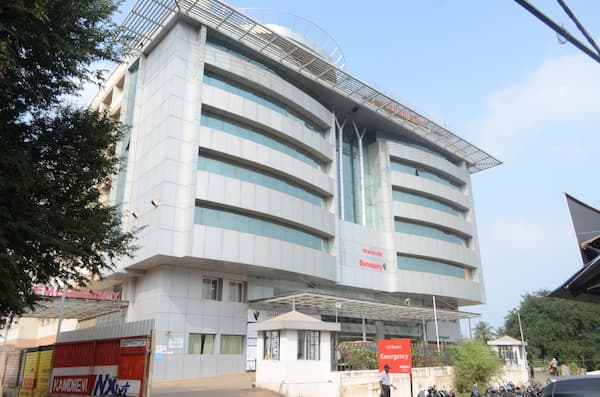Dr. Mahesh Neelakanthanavar, Senior Consultant General Medicine and Diabetology, HCG Suchirayu Hospital, Hubballi
&
Dr. Govind Desai, Consultant Interventional Pulmonology, HCG Suchirayu Hospital, Hubballi
Pneumonia is a respiratory infection which inflames the air sacs either or both the lungs. This is majorly caused by a diverse variety of microorganisms like bacteria, viruses, and fungi but the main culprits are bacterial and viral infections. The severity of pneumonia can range from mild to life-threatening based on an individual’s overall health. Diabetes on the other hand is a chronic condition with several health complications. It can weaken one’s immune system leaving at a greater risk of contracting diseases like pneumonia.
Link between Diabetes – Pneumonia:
Diabetic patients are particularly vulnerable to pneumonia due to a variety of factors. Firstly, diabetes suppresses the immune system’s ability to fight infections. High blood sugar levels can impair the function of white blood cells, which are the body’s natural defense against pathogens. Additionally, diabetes often comes with other comorbidities like heart disease and kidney problems, further weakening the body’s resistance to infections. Diabetic patients are more likely to be overweight or obese, amplifying the risk of contracting pneumonia.
Medicine induced Risks:
Medications like corticosteroids, which are prescribed for inflammatory conditions, can suppress the functioning of the immune system, and increase the chances of contracting diseases like pneumonia.
Respiratory Complications:
Diabetic patients might have pre-existing respiratory conditions such as Chronic Obstructive Pulmonary Disease (COPD) or asthma which can elevate the risk of pneumonia. These conditions will make it difficult for the lungs to expel mucus, which can lead to the accumulation of harmful bacteria and viruses, increasing the likelihood of pneumonia.
Age and Lifestyle:
Age progression plays a pivotal role in increasing the risk of both pneumonia and diabetes. Older adults tend to have weaker and suppressed immune systems making it easy for them to be susceptible to infections. Additionally, lifestyle factors such as alcohol consumption and smoking can further weaken the immune system, increasing the vulnerability to contract pneumonia.
Preventive Measures:
Diabetes Management: Effective management of blood glucose levels is important. Regular monitoring, medication compliance, and practicing a healthy lifestyle can go a long way in reducing pneumonia risk.
Immunizations: Annual influenza and pneumonia vaccinations are recommended for diabetic patients. These vaccines can help prevent infections and reduce the severity of the illness if contracted.
Smoking Cessation: Encouraging diabetic patients to quit smoking can significantly reduce their risk of pneumonia. Smoking damages the respiratory system and impairs the body’s ability to fight infections.
Weight Management: Maintaining a healthy weight is vital for diabetic patients. Lifestyle changes, including diet and exercise, can help reduce the risk of pneumonia by improving lung function and overall health.
Use of Simple Mask: Acute respiratory infections are prevalent and pose a constant threat to society. While the use of facemasks has proven to be an effective barrier to curb the aerosol spread of such diseases, its use in the local community is uncommon, resulting in doubts being cast on its effectiveness in preventing airborne infections during epidemics.
High Protein Diet: A diet high in protein is recommended for those with pneumonia. Nuts, peanuts, beans, white meat, and cold-water fish are examples of foods high in protein that have anti-inflammatory qualities. These foods might also aid in the body’s ability to heal and regenerate tissues.
The risk factors of pneumonia among diabetic patients are correlated and multidimensional. However, awareness and proactive measures can make a significant difference in preventing pneumonia in this vulnerable population. Managing diabetes effectively, immunizations, healthy lifestyle choices, and smoking cessation are key components in reducing the risk and ensuring better respiratory health.























